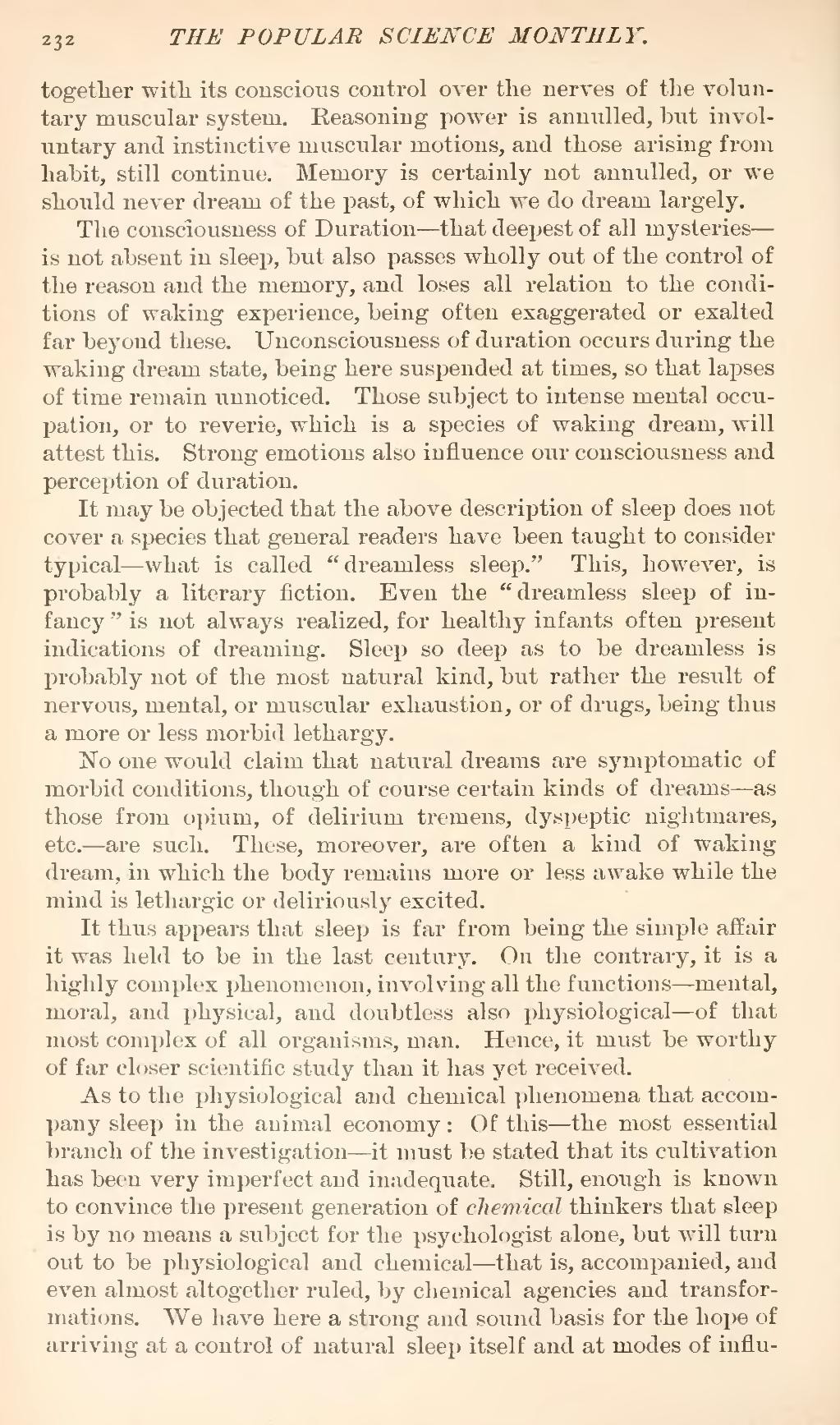together with its conscious control over the nerves of the voluntary muscular system. Reasoning power is annulled, but involuntary and instinctive muscular motions, and those arising from habit, still continue. Memory is certainly not annulled, or we should never dream of the past, of which we do dream largely.
The consciousness of Duration—that deepest of all mysteries—is not absent in sleep, but also passes wholly out of the control of the reason and the memory, and loses all relation to the conditions of waking experience, being often exaggerated or exalted far beyond these. Unconsciousness of duration occurs during the waking dream state, being here suspended at times, so that lapses of time remain unnoticed. Those subject to intense mental occupation, or to reverie, which is a species of waking dream, will attest this. Strong emotions also influence our consciousness and perception of duration.
It may be objected that the above description of sleep does not cover a species that general readers have been taught to consider typical—what is called "dreamless sleep." This, however, is probably a literary fiction. Even the "dreamless sleep of infancy" is not always realized, for healthy infants often present indications of dreaming. Sleep so deep as to be dreamless is probably not of the most natural kind, but rather the result of nervous, mental, or muscular exhaustion, or of drugs, being thus a more or less morbid lethargy.
No one would claim that natural dreams are symptomatic of morbid conditions, though of course certain kinds of dreams—as those from opium, of delirium tremens, dyspeptic nightmares, etc.—are such. These, moreover, are often a kind of waking dream, in which the body remains more or less awake while the mind is lethargic or deliriously excited.
It thus appears that sleep is far from being the simple affair it was held to be in the last century. On the contrary, it is a highly complex phenomenon, involving all the functions—mental, moral, and physical, and doubtless also physiological—of that most complex of all organisms, man. Hence, it must be worthy of far closer scientific study than it has yet received.
As to the physiological and chemical phenomena that accompany sleep in the animal economy: Of this—the most essential branch of the investigation it must be stated that its cultivation has been very imperfect and inadequate. Still, enough is known to convince the present generation of chemical thinkers that sleep is by no means a subject for the psychologist alone, but will turn out to be physiological and chemical—that is, accompanied, and even almost altogether ruled, by chemical agencies and transformations. We have here a strong and sound basis for the hope of arriving at a control of natural sleep itself and at modes of influ-
